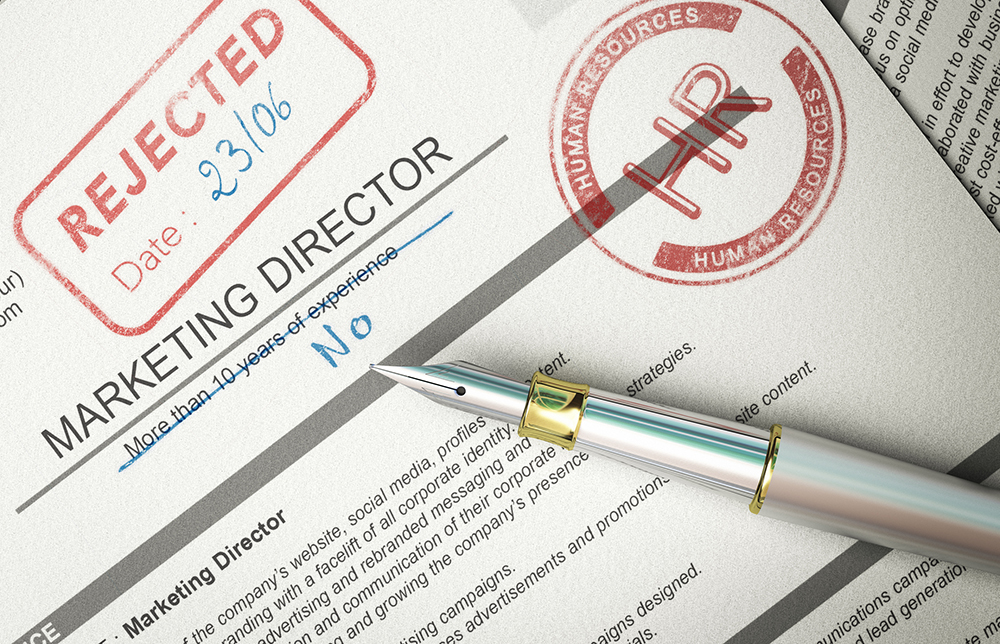The candidate-driven market put jobseekers in the drivers’ seat. They controlled who they wanted to work for, and in many cases, employers were fighting with their competition to land the right fit for the role. Even in a candidate-driven market, however, jobseekers were still lying on their résumés.
Need proof? We’ve got some: here, here, here, and here … and one more for good measure! During the Great Recession of 2008, lying on a résumé was all too common, as jobseekers had to compete against each other for very few open positions.
As the coronavirus continues to impact people across the world, some employers have been required to close down shop; force workers to go remote; or, in some cases, implement a hiring freeze until the virus has run its course. Are we headed for another “great recession”? Have employers finally regained control of the hiring market?
While we don’t have answers to these questions yet, as it’s still too early to tell, one thing remains certain: Jobseekers are still lying on their résumés! If you’re part of the select few employers hiring right now, we’ve outlined some of the ways candidates are fudging the truth.
According to a survey by Savoystewart.co.uk, 63% of respondents admitted to lying on their résumé at some stage in their professional career. The survey features insights from 3,126 individuals across a range of sectors who were either in or looking for full-time employment.
Most Lied About Résumé Aspect
Even though a number of states have adopted reference immunity laws to protect employers that provide information about former employees, many employers remain leery about giving out any information beyond dates of employment and title. And most applicants are aware of this; over 50% of respondents said they lied about past experiences for at least one job application.
Pro tip: If a prospective employer persists, sometimes important information may be obtained. In order to facilitate this process, applicants should always be required to sign a release statement that authorizes the prospective employer to contact past employers for job reference information. The release should be included as part of the employment application and be retained in employees’ personnel file after hire.
While jobseekers are willing to lie about work experience, they are more candid about their education. Education is the least-lied-about résumé feature, according to less than 10% of respondents.
Many employers require applicants to have a certain level of education in order to be considered for employment. Requirements range anywhere from a high school diploma, or equivalent, to a 4-year college degree to some type of advanced training. Even more important, some positions (and state regulations) require that an individual hold a current professional license (e.g., lawyer, certified public accountant, doctor).
Therefore, it may be not only important but also necessary for an employer to verify an applicant’s education or professional license information. The Family Educational Rights and Privacy Act may prohibit a university or college from releasing education or other information without the written consent of the student/applicant (20 USC 1232g).
Pro tip: Any employer that is interested in verifying such information should include a written release and disclosure statement as part of the overall employment application.
| Lied-About/Made-Up Experience or Qualification | Inflated Actual Experience or Qualification | |
| Skill Set | 19% | 24% |
| Work Experience | 23% | 31% |
| Education | 2% | 5% |
| Professional Qualification Courses | 20% | 26% |
How Did the Liars Fare?
Applicants who lied about their work experience and skill set were the most successful. With preassessment screening, you can easily debunk a jobseeker’s supposed skill set, so we were surprised to see that a small percentage of these candidates were found out (8% and 10%, respectively).
Lying about your education is the attribute most likely to be discovered by employers—12% of those who made up educational qualifications were found out. Now, mind you, according to the findings above, not many jobseekers are lying about their education to begin with, so it’s surprising that those who are are being caught for lying about it.
| Lied About | Got Job | Were Found Out |
| Skill Set | 23% | 10% |
| Work Experience | 37% | 8% |
| Education | 9% | 12% |
| Professional Qualification Courses | 14% | 1% |
Industries with the Most Résumé Lies
Marketing and hospitality employers should be extra careful when vetting their applicants! According to the findings, a whopping 67% of marketing applicants and 60% of hospitality jobseekers admitted to lying on or embellishing their résumés when applying for jobs.
We are happy to report that the healthcare industry saw the smallest number of résumé lies, with only 5% of jobseekers in this field admitting to lying on their résumé.
| Industry | Percentage Who Admitted to Lying on Résumés |
| Marketing | 67% |
| Hospitality | 60% |
| Finance | 34% |
| Education | 26% |
| Law | 12% |
| Health Services | 5% |
Liar, Liar, Pants on Fire
One last data point to mention: When broken down by gender, more male jobseekers (48%) admit to lying on résumés than female jobseekers (15%) in order to improve their chances of getting a job.
What has this research taught us? No matter what type of job market we’re in, jobseekers will lie on their résumés in order to make themselves appear like the best fit for the job. Fortunately, for savvier employers, utilizing background screening services, performing skills-based assessments, and asking behavioral-based interview questions will uncover these lies to help them get to the truth!

